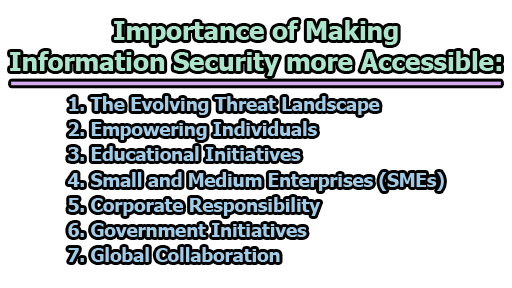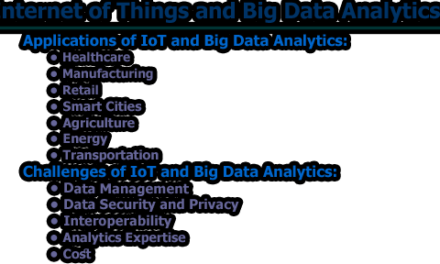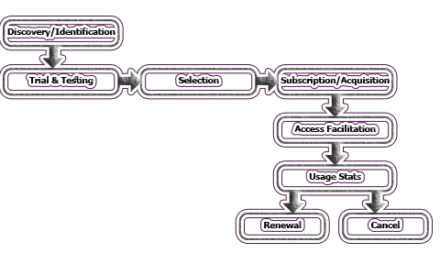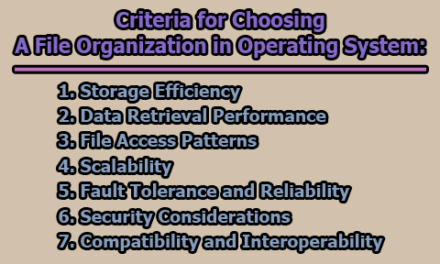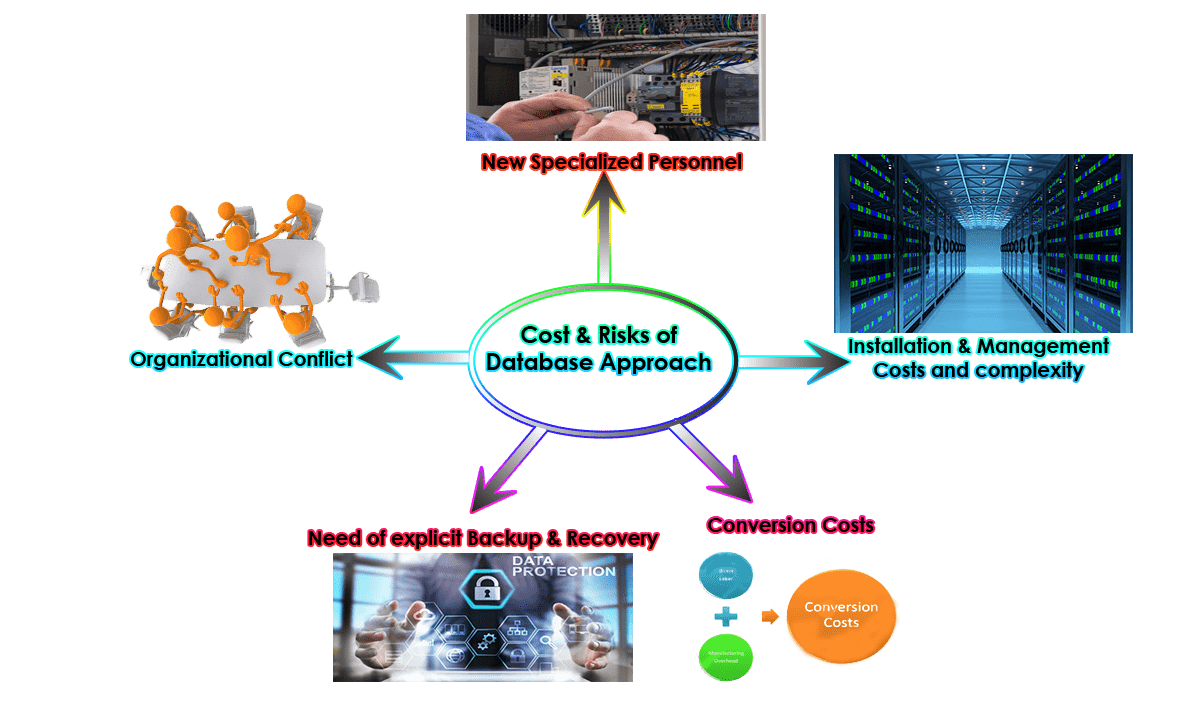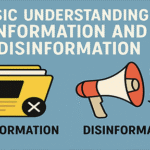Importance of Making Information Security more Accessible:
In an era dominated by digital interactions and technological advancements, information security has become paramount to safeguarding individuals, organizations, and nations from the ever-evolving landscape of cyber threats. As technology continues to permeate every aspect of our lives, the importance of making information security more accessible cannot be overstated. In the rest of this article, we will delve into the importance of making information security more accessible, exploring the implications for individuals, businesses, and society as a whole.
1. The Evolving Threat Landscape: The digital age has ushered in unprecedented connectivity, efficiency, and innovation, but it has also given rise to a complex and dynamic threat landscape. Cybercriminals continually exploit vulnerabilities in software, networks, and human behavior, posing significant risks to the confidentiality, integrity, and availability of sensitive information. From ransomware attacks crippling businesses to state-sponsored cyber espionage threatening national security, the consequences of inadequate information security are far-reaching.
As the sophistication of cyber threats grows, the need for a well-informed and vigilant populace becomes increasingly urgent. Unfortunately, traditional approaches to information security often involve complex jargon, intricate technologies, and specialized expertise, creating a significant barrier for the average person. Making information security more accessible is not merely a matter of convenience; it is a fundamental necessity for the collective defense against cyber threats.
2. Empowering Individuals: Individuals are the first line of defense in the realm of information security. From safeguarding personal data to recognizing phishing attempts, ordinary users play a critical role in fortifying the digital landscape. However, many individuals lack the necessary knowledge and resources to navigate the intricacies of online security effectively.
Democratizing information security means providing accessible and comprehensible resources that empower individuals to protect themselves online. This involves simplifying complex concepts, offering user-friendly tools, and fostering a culture of awareness. By enhancing digital literacy and promoting responsible online behavior, individuals can contribute to creating a more secure digital environment.
3. Educational Initiatives: Education is a cornerstone of democratizing information security. Integrating cybersecurity awareness and best practices into formal education curricula, from primary schools to higher education institutions, is essential. This not only equips the upcoming generation with the skills needed to navigate the digital landscape safely but also establishes a culture of cybersecurity from an early age.
Moreover, continuous learning opportunities for individuals already in the workforce are crucial. Online courses, workshops, and awareness campaigns can bridge the knowledge gap, ensuring that people stay informed about emerging threats and evolving security measures. Collaborations between educational institutions, industry experts, and government bodies can facilitate the development of standardized, accessible, and up-to-date information security training programs.
4. Small and Medium Enterprises (SMEs): The backbone of many economies worldwide, small and medium enterprises (SMEs) often lack the resources and expertise to implement robust cybersecurity measures. Cybercriminals are well aware of this vulnerability, targeting SMEs as easy entry points to larger networks or as sources of valuable data.
Making information security more accessible for SMEs involves offering tailored solutions that align with their specific needs and constraints. This may include user-friendly cybersecurity tools, affordable training programs, and support networks. Government initiatives can play a vital role in incentivizing SMEs to prioritize cybersecurity by providing grants, tax benefits, or access to subsidized cybersecurity services.
By fortifying SMEs against cyber threats, the overall resilience of the digital ecosystem is strengthened, as these businesses are integral components of supply chains and economic networks.
5. Corporate Responsibility: Large corporations, with their vast resources and global reach, bear a significant responsibility in the quest for democratizing information security. Beyond implementing robust cybersecurity measures for their own protection, corporations can contribute to a safer digital environment by actively sharing threat intelligence, best practices, and resources with smaller entities.
Transparency in data handling, ethical data practices, and user-friendly security features in products and services are essential aspects of corporate responsibility. This not only enhances customer trust but also sets industry standards that prioritize the security and privacy of user data.
6. Government Initiatives: Governments play a pivotal role in shaping the landscape of information security. Legislative measures, regulatory frameworks, and public policies can either hinder or facilitate the democratization of cybersecurity. Governments should invest in creating and enforcing regulations that mandate basic cybersecurity standards across industries.
Moreover, public awareness campaigns, funded by government initiatives, can disseminate information about emerging threats and provide guidance on best practices. Collaboration between governments, private sector entities, and non-profit organizations is crucial for developing comprehensive strategies that address the multifaceted challenges posed by cyber threats.
7. Global Collaboration: The interconnected nature of the digital world necessitates global collaboration in the fight against cyber threats. Information security is not confined by borders, and a breach in one part of the world can have ripple effects globally. International cooperation is vital for sharing threat intelligence, coordinating responses to cyber incidents, and establishing global standards for cybersecurity.
Democratizing information security on a global scale involves bridging the digital divide by providing resources and support to developing nations. This ensures that all nations, regardless of their economic status, can actively participate in the collective defense against cyber threats.
In conclusion, the democratization of information security is not a luxury but a necessity in the face of an ever-evolving and pervasive cyber threat landscape. From individuals to large corporations and governments, everyone has a role to play in creating a more secure digital environment.
By making information security more accessible, we empower individuals to protect themselves, enable businesses to fortify their defenses, and strengthen the collective resilience of societies worldwide. Education, collaboration, and a shared commitment to ethical practices are the cornerstones of a future where information security is not a privilege but a universal right. Only through concerted efforts on a global scale can we hope to navigate the complexities of the digital age securely and responsibly.

Assistant Teacher at Zinzira Pir Mohammad Pilot School and College

